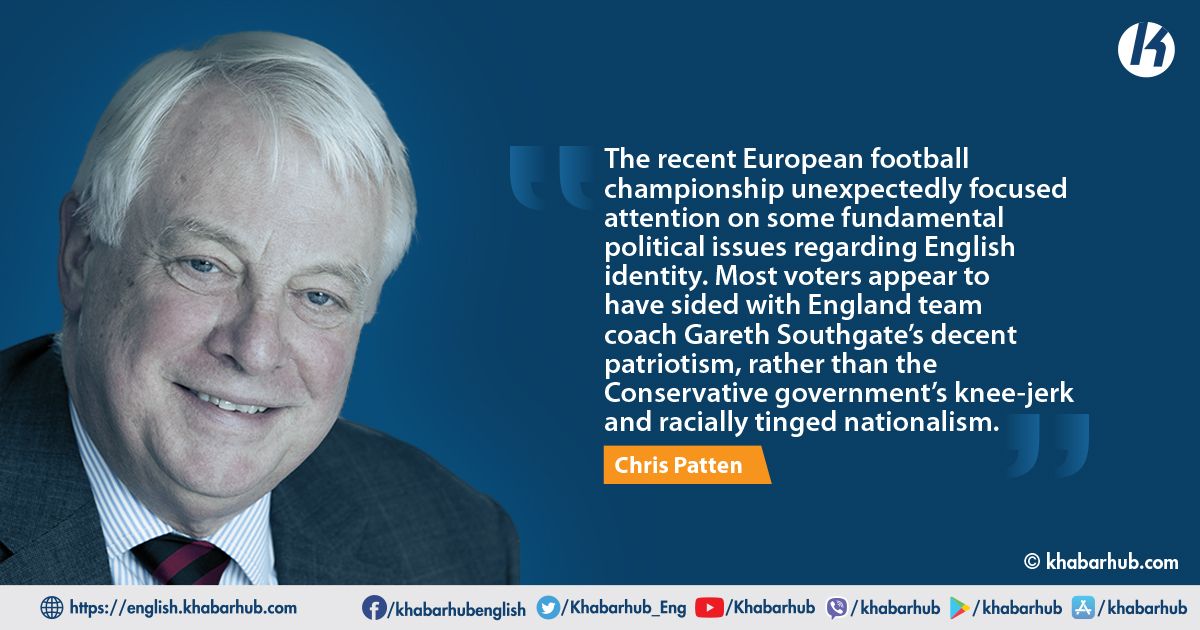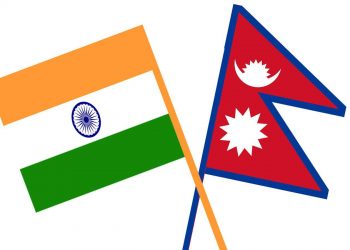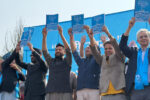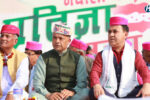Few English voters, and even fewer members of the United Kingdom’s political establishment, expected the recent European football championship, deservedly won by the most experienced team, to focus attention quite so clearly on some fundamental political issues.
But, like the 2016 Brexit referendum campaign, the tournament once again forced the English – and our UK compatriots in Scotland, Wales, and Northern Ireland – to think about nationalism, and to recognize the important distinction between it and patriotism.
Nationalism has not had good press in recent years, especially in the more liberal media. Politicians like Hungarian Prime Minister Viktor Orbán, Marine Le Pen in France, Turkish President Recep Tayyip Erdoğan, and former US President Donald Trump have frequently been accused of undermining the basic values of free and tolerant societies and encouraging a drift toward autocracy.
In China, which has abandoned Marxism but remains resolutely Leninist, the regime drums up nationalism to substitute for the moral values that communism was supposed to reflect.
Chinese “wolf-warrior” diplomats attack any country that disagrees with the Communist Party of China’s narrative about the country’s past and present, and make heroes of anyone – including those who took part in the Boxer Rebellion at the turn of the twentieth century – who fought against Western societies.
Patriotism recognizes this complexity. It does not blind us to the complications of our ties, nor bury the quest for knowledge about ourselves and who we have become.
There is nothing inherently wrong with nationalism. It recognizes that the basic unit of government in recent centuries has been the nation-state, with boundaries encompassing not only physical geography but also a shared sense of common identity, including collective ideas of historic success and failure.
A nation-state’s citizens are usually prepared to fight for it in emergencies, and they plant their national flag at the summit of mountains they climb. They may accept the necessity of international organization and collaboration, but do not usually feel as loyal to multilateral institutions as they do to national ones.
But the idea of nationalism curdles when it begins to define itself (outside of wartime) against an alleged, often imagined, external threat or an internal racial, ethnic, linguistic, or religious minority group.
Its observance of a majority religion is often much weaker than its hostility to any other set of religious ideas. When the English politician Enoch Powell spoke powerfully about English nationalism in the 1950s and 1960s, he attracted little attention.
The players deserved the unequivocal support of Britain’s political leaders. But Home Secretary Priti Patel said in a television interview that English fans were simply exercising the choice to make their views clear on something that was just “gesture politics.”
But once he defined national values in terms of the threat they allegedly faced from immigrants of a different color and background – whom he emotively claimed would soon have the “whip hand” over the native English – people came onto the streets to support him.
In England, such hostility to outsiders who live among the so-called national group may in one sense appear curious: the writer Daniel Defoe long ago described us as “a mongrel half-bred race,” the genetic and cultural result of many tribal invasions.
In more recent times, one consequence of Britain’s imperial history has been that some of those in the foreign lands we once colonized have come to live among us. They are here because we were there.
Patriotism recognizes this complexity. It does not blind us to the complications of our ties, nor bury the quest for knowledge about ourselves and who we have become.
Likewise, it does not make enemies of reason and tolerance, but instead welcomes and embraces differences and diversity as strengths in an open and free society.
The best recent description of this state of mind has come not from a British political leader but from the manager of the England men’s football team in the recent championship, Gareth Southgate.
In a public letter that he wrote on the eve of the tournament, which concluded with England losing a thrilling final to Italy, he celebrated as a patriot the pride and privilege that his multiracial squad felt in representing Queen and country.
He noted that the players’ celebrity gave them a responsibility to interact with the public “on matters such as equality, inclusivity, and racial injustice, while using the power of their voices to help put debates on the table, raise awareness, and educate.”
They have done exactly this on a number of issues, especially the coronavirus pandemic’s effects on poverty and child welfare, and above all on racial justice, a particular challenge for players who had suffered abuse because of their skin color.
To make this point as strongly and reasonably as possible, the England players “took the knee” immediately prior to the start of their matches during the Euro tournament.
It was pretty clear that most voters sided with Southgate’s view of patriotism and not the Conservative government’s knee-jerk English nationalism with its unpleasant overtones and undertones.
The racist louts who constitute a minority of English football fans booed them for doing so, just as they booed the national anthems of England’s opponents.
The players deserved the unequivocal support of Britain’s political leaders. But Home Secretary Priti Patel said in a television interview that English fans were simply exercising the choice to make their views clear on something that was just “gesture politics.”
Many rightly saw Patel’s comment as an unpleasant “dog-whistle” – a wink and a nudge to racists whose political support the ruling Conservatives might need. And Prime Minister Boris Johnson (himself previously no slouch when it came to voicing racist slurs), refused to criticize her.
Unfortunately for Johnson, several Conservative MPs, and the UK’s international reputation, the issue then exploded when three black English players who had missed penalty kicks during the shootout loss to Italy were subjected to the sort of racist social-media abuse that “taking the knee” had sought to call out and prevent.
It was pretty clear that most voters sided with Southgate’s view of patriotism and not the Conservative government’s knee-jerk English nationalism with its unpleasant overtones and undertones.
In fact, many people in the UK may be privately wishing that the England manager had Johnson’s job.
(Chris Patten, the last British governor of Hong Kong and a former EU commissioner for external affairs, is Chancellor of the University of Oxford)
Copyright: Project Syndicate








Comment